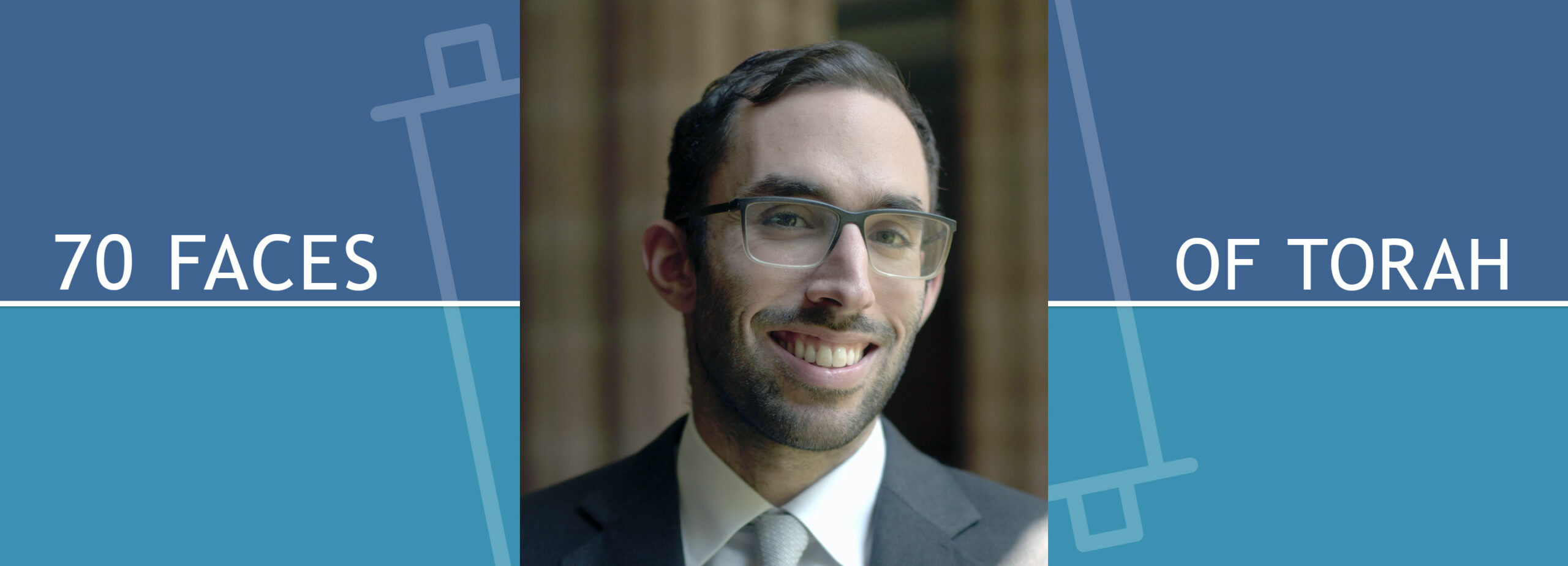Genesis Finding Holiness at Life’s Margins

Parashat Vayigash (Genesis 44:18–47:27)
After many years of distance between Jacob and his son Joseph, we read of a remarkable reunion in Parashat Vayigash. Certain that Joseph died long ago, it takes a moment for Jacob to internalize the words of his children who inform him that Joseph, his beloved son, is still alive and thriving in Egypt:
They went up from Egypt and came to their father Jacob in the land of Canaan.
And they told him, “Joseph is still alive; yes, he is ruler over the whole land of Egypt.” His heart went numb, for he did not believe them.
But when they recounted all that Joseph had said to them, and when he saw the wagons that Joseph had sent to transport him, the spirit of their father Jacob was revived. (Genesis 45:25-27)
It is only now that we explicitly learn of Jacob’s continuous heartache over the departure of Joseph. Only now, years later, is Jacob’s ruach, his spirit, revived and full.
The Talmud in Tractate Berachot says that upon seeing a friend for the first time in a year or more, one should recite the following blessing:
Blessed are You, Adonai our God, King of the universe, who revives the dead. (Berachot 58b)
It is not only a blessing upon the person who is seen, the one who was presumed dead, but also, as read through the experience of Jacob, a blessing for one’s own self. Seeing others, seeing loved ones, is nothing less than life-giving. Paradoxically, however, it is only when Jacob hears the news of Joseph’s survival, when Jacob’s spirit is restored, that he verbalizes his readiness to die.
Then Israel said to Joseph, “Now I can die, having seen for myself that you are still alive.” (Genesis 46:30)
It would be reasonable to assume the opposite response from Jacob. Once he hears that Joseph is still alive, one might expect that Jacob would attempt to extend his life as much as possible, squeezing out every possible opportunity to be with his long-lost son, to cherish the time they have together.
Jacob, however, greets this news not in a state of haste, but in a state of contentment.
Later on in the parasha, when Joseph brings Jacob to meet Pharaoh, Pharaoh asks Jacob one question: How old are you?
Our commentators suggest that perhaps Jacob’s features excessively reflected his old age, prompting Pharaoh to ask this curious question. Jacob’s response appears to pick up on this undercurrent. He not only recounts his age, but also presents a reason for his seemingly aged appearance.
“The years of my sojourn are one hundred and thirty. Few and hard have been the years of my life, nor do they come up to the life spans of my fathers during their sojourns.” (Genesis 47:9)
Up until this point, Jacob lived an exhausting life. Beginning as an ish tam, a simple man, he grew to become the deceiver and the deceived. He made enemies, and was made an enemy. He lost and regained a loved one, buried his beloved wife, and was stunted to silence after the rape of his daughter, Dinah.
Jacob was unable to nest. Unlike his father, Isaac, who never left the land of Canaan, Jacob was constantly on the move. Rashi takes special note of the word “sojourn” in the verse, related closely to the word for stranger. He writes, “The years of my sojourn means the days of my being a stranger. All my days I have been a stranger in other peoples’ lands.”
Hearing that Joseph is still alive is Jacob’s ultimate assurance that his perpetual sojourn can finally come to an end. And it is in the following week’s parasha, Parashat Vayechi, that Joseph pledges to bury Jacob in the land of Canaan.
Parashat Vayigash exists in what Pastoral Psychologist Dr. Melissa Kelley calls a “boundary situation.” It is a moment, however brief, where this world and the next embrace in an unimaginable harmony. Kelley notes that the holiness of such moments come from two aspects: “First, such moments bring us in touch with the essential ground and mystery of life. Second, they compel us to encounter our own limitations in the face of inexorable life forces.”
I am moved by the way in which Jacob encounters his own limitations in this extreme and poignant moment. Jacob meets boundary situation after boundary situation throughout his entire life, and it is here, finally, where he finds realism, resilience, and relief. The knowledge that he loves and is loved gives Jacob comfort, and if we’ve learned anything over the past year and half, we ourselves have the same blessings to offer. As we continue through this perpetual sojourn, may we hold our loved ones close, and may we be blessed to greet each moment in love, and an eye toward how we ourselves might emerge wholehearted and fulfilled.
Rabbi Max Edwards graduated from the Rabbinical School of Hebrew College in 2021. He is currently the Assistant Rabbi at Temple B’nai Abraham in Livingston, New Jersey.

